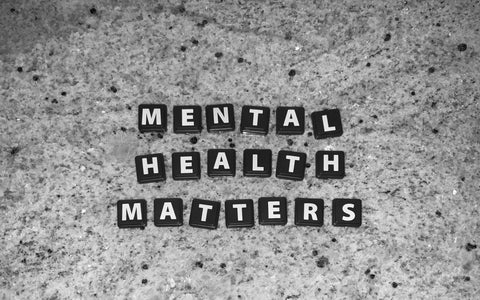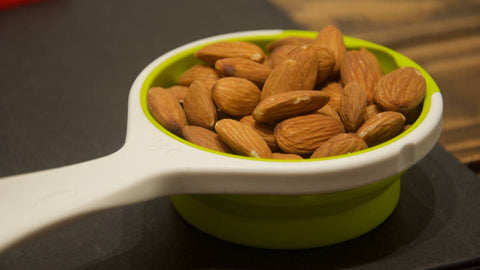Could your diet and lifestyle be impacting your mental health?
October is National Mental Health Month which is an opportunity to raise awareness of Australian Mental Health. Most of us can acknowledge that when we eat better, we feel better but is there scientific evidence to support this? In this month's blog our resident dietitian Nicole delves a little deeper into this topic!
Why does our mental health matter?
Did you know that over 2 in 5 Australians aged between 16-85yrs of age are estimated to have experienced a mental disorder at some time in their life? Anxiety disorders are the most common followed by depression. We know that poor mental health is often linked to poor physical health whether it be low energy, poor sleep, digestive issues such as Irritable Bowel Syndrome (IBS) or chronic diseases such as type two diabetes and heart disease. Simply put, poor mental health can affect your physical health in various ways. It can affect your ability to think clearly, make healthy decisions and fight off illness and chronic disease.
Why do we feel better when we eat better?
It is no coincidence that filling our body with nutritious foods will most likely have a positive impact on our energy levels and mood. The quality of people’s diets is very clearly linked to their risk of developing depression. Research shows there is no one specific diet to optimise mental health. A healthy ‘traditional’ diet is associated with a reduced risk of depression and anxiety. These diets tend to be based off whole foods such as
- Fruits
- Vegetables
- Wholegrain cereals such as rye, oats, sourdough, couscous, quinoa etc
- Beans and legumes
- Nuts and seeds
- Fish and seafood and
- Extra-virgin olive oil
On the other hand, diets high in junk foods such as sugar-sweetened drinks, fried foods, pastries, processed cereal foods (e.g. sugary breakfast cereals, white bread), and processed meats are consistently associated with a higher risk of depression and anxiety.
A 2018 systematic review of 41 studies found that those who stuck to a healthy diet or avoided a unhealthy diet had a 24-35% lower risk of depressive symptoms compared to those who ate more unhealthy foods (Lassale et.al 2018)
We think that consuming a healthy diet has a positive impact on our brain health and mental health by reducing inflammation in the body, nourishing the ‘good’ microbes in our gut and strengthening them in numbers, providing the body with important nutrients and avoiding deficiencies in vitamin D, iron and B12 which impact our mood, supporting the production of important brain chemicals and also protecting a part of the brain called the hippocampus.
Here is a healthy mood checklist
 Aim to tick off as many as possible or simply start by trying to achieve one of these habits per week:
Aim to tick off as many as possible or simply start by trying to achieve one of these habits per week:
- Include fish, particularly oily fish 2-3x/wk
- Include 2-4 serves of fruit daily (1 serve = 1 medium piece or 2 small pieces)
- Include 5 serves of vegetables daily (1 serve = 1 cup salad or ½ cup cooked veggies)
- 4-6 serves of Whole Grains daily (1 serve = 1 slice grainy bread, 1/2 cup brown rice/pasta/quinoa/oats)
- Aim for 30g of fibre daily
 Choose low GI foods
Choose low GI foods- Include ½ to 1 cup of cooked legumes 3x/wk e.g. chickpeas, lentils, edamame beans
- Include 30 - 45g nuts daily (1 handful)
- Include prebiotic rich foods daily (garlic, onion, cabbage, asparagus, soybeans, lentils, green banana, oats, psyllium, whole grain cereals)
- Use extra-virgin olive oil as your main oil
- Aim for 7 - 8 hours sleep per night
- Aim for 30-60 minutes of cardio exercise per day
 Include 30-40 different plant foods per week
Include 30-40 different plant foods per week- Aim for 8-10 glasses of water daily
- Include fermented foods daily (probiotic yoghurt, kefir, yakult, kimchi)
- Limit or avoid alcohol
- Limit or avoid discretionary foods
- Limit or avoid sugar-sweetened beverages
Interested in optimising your diet to support your mental health? Book in with one of the qualified dietitians at Eatsense today .


